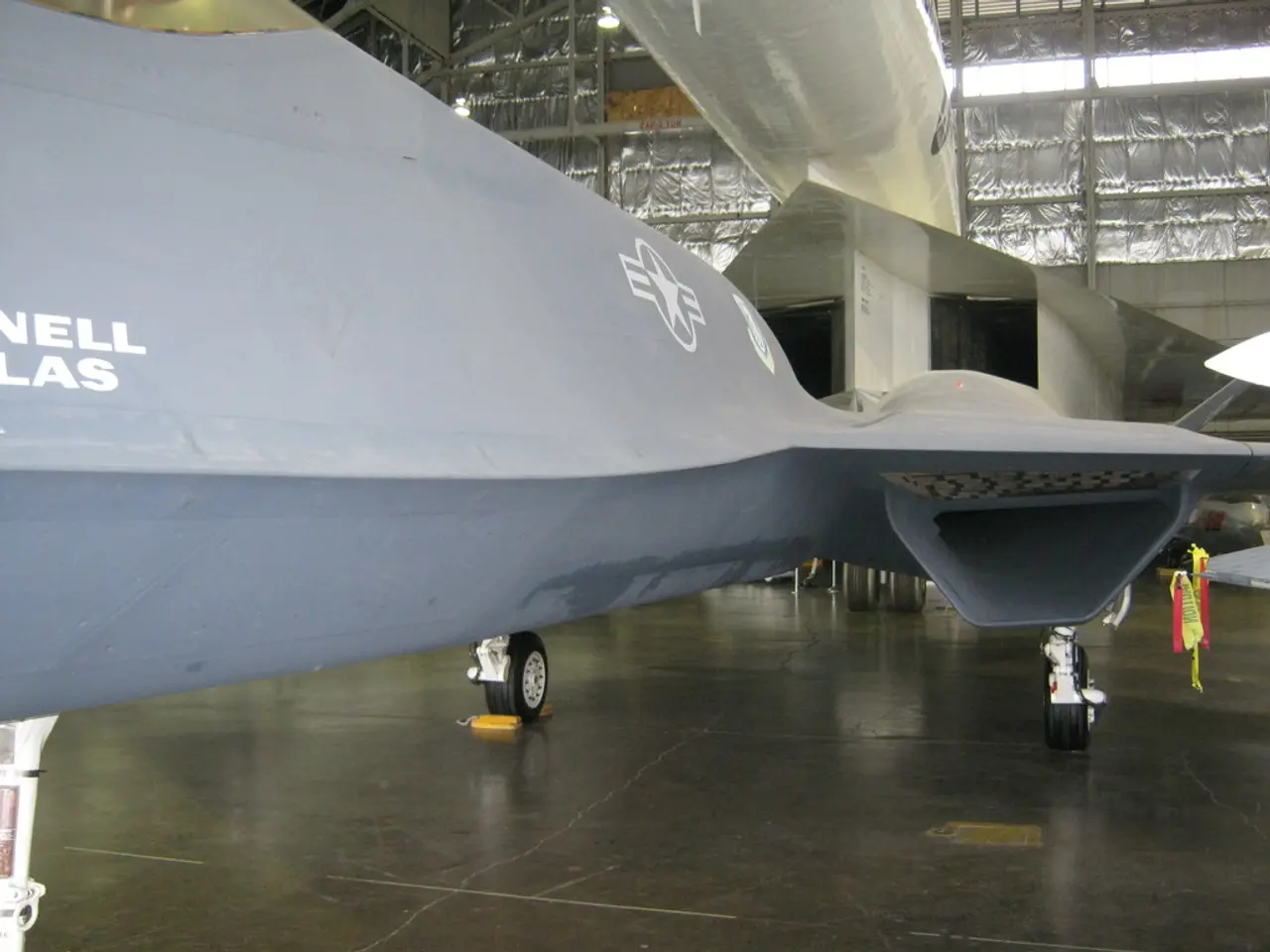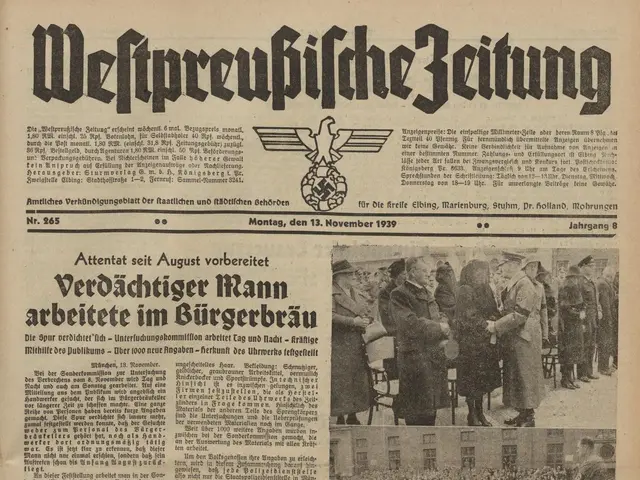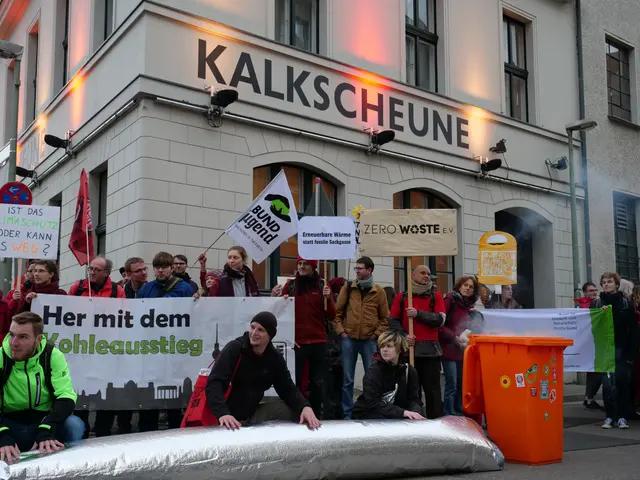"Workers at Boeing Defense protest: Thousands walk off jobs due to dissatisfaction with wages and work conditions"
Boeing Fighter Jet Workers Strike Over Labor Disputes
Boeing fighter jet workers in the Midwest have walked out in protest, marking a significant labor dispute amid soaring company profits from war-related contracts. Approximately 3,200 workers, who build aircraft and defense systems that keep the country safe, are involved in the strike at Boeing facilities in St. Louis, St. Charles, Missouri, and Mascoutah, Illinois.
The strike follows the rejection of a modified four-year labor agreement, which included a 40% average wage growth and improvements in medical, pension, and overtime benefits. The union, International Association of Machinists and Aerospace Workers, announced the strike on X.
Sam Cicinelli, Midwest territory general vice president for the union, stated that the workers deserve a contract that keeps their families secure and recognizes their unmatched expertise. He expressed that the workers are striking to address concerns about wages, working conditions, and contract negotiations.
The strike has impacted Boeing's production schedule and delivery timelines for fighter jets, potentially affecting defense supply chains and military readiness. The ongoing strike also draws attention to the broader issues of labor rights in highly profitable defense industries.
The company, however, is prepared for a strike and has implemented its contingency plan to ensure its non-striking workforce can continue supporting its customers. Boeing's second-quarter revenue has improved, with the company reporting a loss of $611 million in the second quarter, which is a significant improvement from a loss of $1.44 billion during the same period last year.
The labor dispute comes at a time when Boeing is struggling following the crashes of two Boeing 737 Max airplanes, one in Indonesia in 2018 and the other in Ethiopia in 2019, which killed 346 people. The company has faced significant challenges as a result, and the latest proposal from Boeing was rejected by the union members after a weeklong cooling-off period.
The article is sourced from France 24 with AFP. The union leaders had previously recommended approving the offer, but the rejection came despite the offer resolving the union's primary issue on alternative work schedules. Dan Gillian, Boeing Air Dominance vice president and general manager, expressed disappointment over the rejection of the offer.
As of the latest information, the strike is ongoing, with no resolution yet announced. The workers remain on strike to press their demands, while the company and labor representatives continue negotiations. The strike underscores the complexities of balancing labor rights with the need for a robust defense industry.
The labor strike by Boeing fighter jet workers has disrupted the production schedule and delivery timelines for aerospace business, potentially affecting the supply chains and readiness of the defense industry. Despite the improved financial situation of Boeing, with a significant reduction in losses compared to last year's second quarter, the rejection of the proposed labor agreement highlights the ongoing disputes in the finance and industry sectors.








